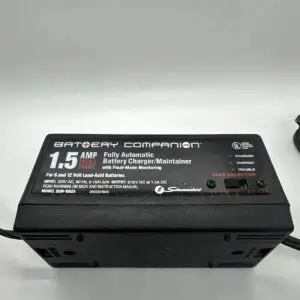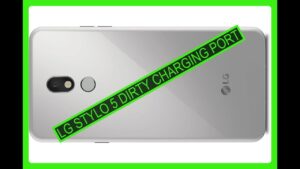Curious about how much it costs to install an EV charger? You’re in the right place! In this article, we’ll dive straight into the answer, providing you with a solution that will fit seamlessly into your life. We understand that installing an EV charger can be a significant decision, both in terms of convenience and budget. You’re probably wondering, “How much will it cost me?” Well, worry no more! We’ll break it down for you, ensuring you have all the essential information before you take the leap into an electrified future. Let’s get started!
How Much Does It Cost to Install an EV Charger?
Installing an electric vehicle (EV) charger at home can be a convenient and cost-effective solution for EV owners. However, the cost of installing an EV charger can vary depending on several factors. In this article, we will explore the different aspects that can influence the overall cost and provide you with a comprehensive understanding of what to expect when considering the installation of an EV charger.
Factors Affecting the Cost of Installing an EV Charger
Several factors can impact the cost of installing an EV charger. It’s important to consider these factors to have a clear understanding of the overall expenses involved. Let’s dive into each one:
1. Charger Type and Level of Charging
The cost of an EV charger largely depends on its type and the level of charging it offers. There are three main types of chargers commonly available:
- Level 1 Chargers: These chargers use a standard household 120-volt electrical outlet and are the slowest option. They typically come with the vehicle and require no additional installation costs.
- Level 2 Chargers: Level 2 chargers use a 240-volt electrical circuit, providing faster charging times compared to Level 1 chargers. They require a professional installation and can cost between $500 to $2,500, depending on the charger’s features and brand.
- Level 3 Chargers (DC Fast Chargers): These chargers offer the fastest charging times and are typically found in public charging stations. Level 3 chargers require specialized installation and can cost tens of thousands of dollars.
2. Electrical Panel Upgrades
The electrical panel in your home may need upgrading to accommodate the additional power required for an EV charger. If your electrical panel has sufficient capacity, you may not require an upgrade. However, older homes or panels with limited capacity may need electrical service upgrades. The cost of panel upgrades can range from $500 to $3,000, depending on various factors such as the size of the panel and the complexity of the installation.
3. Wiring and Conduit
Proper wiring and conduit are essential for a safe and efficient EV charger installation. The distance between the electrical panel and the charger location, as well as any obstacles that may hinder the installation process, can impact the cost. On average, the cost of wiring and conduit can range from $500 to $2,000, depending on the complexity of the installation.
4. Permits and Inspections
Obtaining the necessary permits and scheduling inspections is an integral part of installing an EV charger. Permit costs can vary depending on your location and local regulations. Some areas may require additional permits for electrical work, which can add to the overall cost. Additionally, inspections ensure the installation meets safety standards. The permit and inspection costs can range from $100 to $500.
5. Additional Features and Accessories
Optional features and accessories can enhance the functionality and aesthetics of your EV charger. These may include features such as Wi-Fi connectivity, cable management systems, or customized charging cables. The cost of these additional features will depend on the brand, model, and your preferences. Be sure to consider these costs when budgeting for an EV charger installation.
Cost Breakdown and Examples
To give you a clearer idea of the potential costs, here are a few examples of different scenarios:
Example 1: Basic Level 2 Charger Installation
- Level 2 Charger Cost: $1,000
- Electrical Panel Upgrade: $1,000
- Wiring and Conduit: $1,000
- Permits and Inspections: $200
In this example, the total cost for a basic Level 2 charger installation would amount to approximately $3,200.
Example 2: Level 2 Charger with Advanced Features and Panel Upgrade
- Level 2 Charger (Advanced Features): $2,500
- Electrical Panel Upgrade: $2,000
- Wiring and Conduit: $1,500
- Permits and Inspections: $300
In this scenario, the total cost for a Level 2 charger installation with advanced features and a panel upgrade would be around $6,300.
Example 3: Level 3 (DC Fast) Charger Installation
- Level 3 Charger: $30,000
- Electrical Panel Upgrade: $3,000
- Wiring and Conduit: $2,000
- Permits and Inspections: $500
Installing a Level 3 charger would require a significantly higher investment, with an estimated total cost of $35,500.
Additional Considerations
While the installation costs mentioned here provide a general idea, it’s essential to remember that the actual expenses can vary based on various factors. Here are some additional considerations to keep in mind:
- The labor costs associated with hiring a licensed electrician can vary depending on location and the complexity of the installation.
- Regional factors, such as local building codes and permit requirements, can impact the overall cost.
- Additional equipment, such as a dedicated EV charger circuit breaker, may be necessary to ensure safe and efficient charging.
- Some utility providers offer incentives, rebates, or special rates for installing EV chargers. Researching available programs in your area could potentially lower the overall cost.
Installing an EV charger at home brings convenience and peace of mind to EV owners. Understanding the cost factors involved allows you to make an informed decision and budget accordingly. By considering the charger type, electrical panel upgrades, wiring and conduit costs, permits and inspections, and any additional features, you can estimate the overall expenses associated with installing an EV charger. Remember to consult with professionals and check for local incentives to make the most out of your EV charging investment.
Cost to install an EV charger $1,200 – $2,500 – $10,000 ?!
Frequently Asked Questions
How much does it cost to install an EV charger?
The cost of installing an EV charger can vary depending on several factors such as the type of charger, the location where it will be installed, and any additional electrical work needed. On average, you can expect to spend between $500 and $2,500 for a basic installation. However, more complex installations or the need for additional electrical upgrades can increase the cost.
What factors can affect the cost of installing an EV charger?
Several factors can influence the cost of installing an EV charger. These include:
- The type of charger: Different EV chargers come with varying costs.
- The location of installation: If the charger needs to be installed in a difficult-to-access area or far from existing electrical infrastructure, the installation cost may be higher.
- Electrical upgrades: In some cases, upgrading the electrical panel or wiring may be necessary, increasing the overall cost.
- Permitting and inspection fees: Depending on your location, there may be additional fees for permits and inspections.
Are there any additional costs besides the installation?
Yes, besides the installation cost, there are a few other expenses to consider. These can include:
- Charger unit cost: The price of the charger itself can vary depending on the brand, features, and power capacity.
- Electrician fees: If you hire a professional electrician for the installation, their labor cost will be an additional expense.
- Permit and inspection fees: Some municipalities require permits and inspections for EV charger installations, which may involve additional costs.
Can I get any financial assistance or incentives to help cover the installation cost?
Yes, there are various financial incentives and programs available that can help offset the cost of installing an EV charger. These can include federal, state, or local incentives, tax credits, grants, and utility rebates. It is recommended to research and check with relevant authorities or utility providers to explore any available incentives in your area.
Is it cheaper to install a Level 1 or Level 2 EV charger?
The installation cost of a Level 1 EV charger is typically lower than that of a Level 2 charger. A Level 1 charger uses a standard 120-volt outlet and does not require any additional electrical work. On the other hand, a Level 2 charger requires a dedicated 240-volt circuit, which may involve upgrading the electrical panel or wiring. While the upfront installation cost of a Level 2 charger is higher, it offers faster charging times compared to a Level 1 charger.
Are there ongoing costs associated with using an EV charger?
Using an EV charger will add to your electricity bill, but the cost will depend on your electricity rate and the amount of charging you do. However, the overall cost of charging an electric vehicle is typically lower compared to fueling a gasoline-powered car. Additionally, some utility providers offer special electric vehicle charging rates that can help reduce the ongoing charging costs.
Final Thoughts
Installing an EV charger can be a valuable investment for electric vehicle owners. While the cost may vary depending on several factors, including the charger type, location, and electrical upgrades, it is essential to consider the installation expenses. On average, the cost to install an EV charger can range from $500 to $2,500 or more. This cost includes the charger, labor, materials, permits, and any necessary electrical upgrades. By evaluating your specific requirements and obtaining multiple quotes, you can determine a more accurate estimate for your EV charger installation. So, if you are wondering how much to install an EV charger, consider these factors and consult with professionals to get an estimate tailored to your needs.


